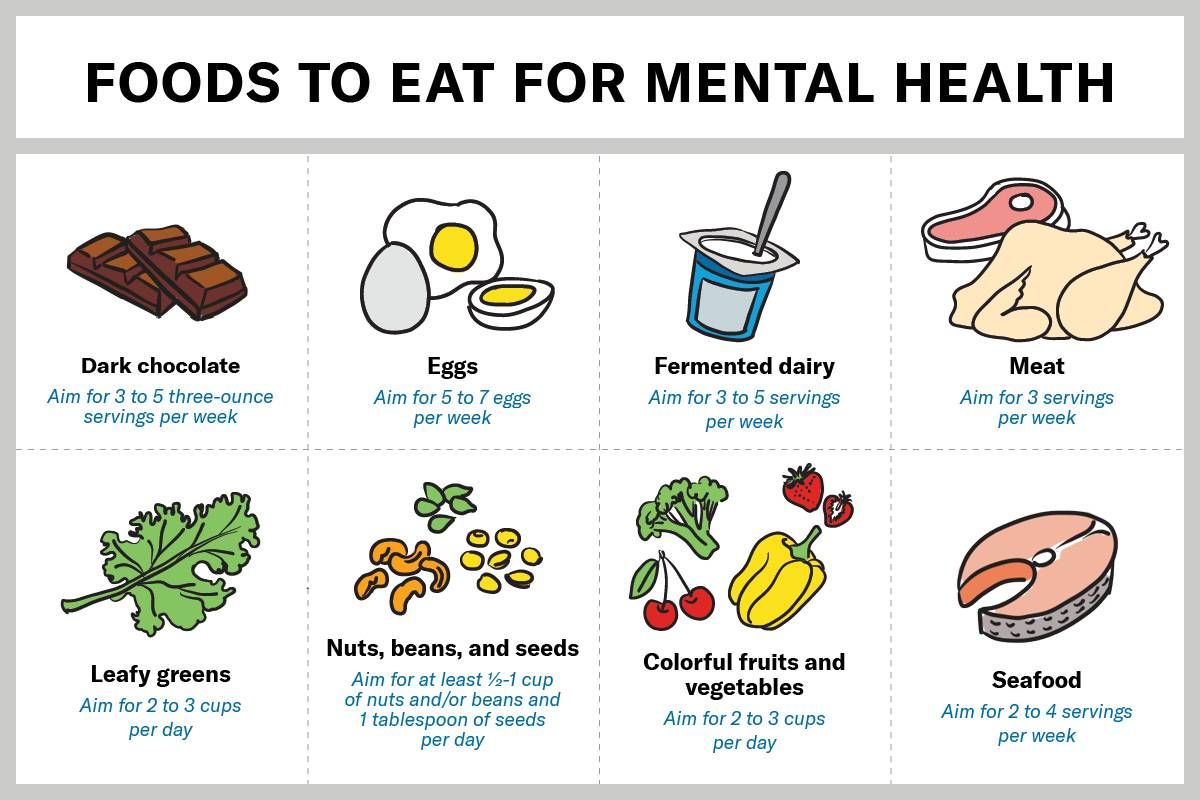

In today’s fast-paced world, maintaining mental clarity and focus is crucial for productivity and overall well-being. Let’s learn more about this topic below with Eggy Car, as we explore the foods that can hinder cognitive function and how to make better dietary choices for improved mental performance.
The food we consume plays a significant role in our cognitive function, affecting our ability to concentrate, remember information, and process thoughts effectively. While certain foods can enhance brain health and mental clarity, others can have detrimental effects on our cognitive abilities. By understanding this connection, we can make informed decisions about our diet to support optimal brain function and mental acuity.
Our brains require a constant supply of nutrients to function at their best. The foods we eat provide these essential nutrients, which are used to create neurotransmitters, support cellular health, and maintain proper brain structure. When we consume foods that are lacking in vital nutrients or contain harmful substances, it can lead to inflammation, oxidative stress, and other negative effects on our brain health.
Moreover, the gut-brain connection is increasingly recognized as a crucial factor in cognitive function. The foods we eat directly impact our gut microbiome, which in turn influences our brain health through various pathways, including the production of neurotransmitters and the regulation of inflammation. Therefore, a diet that promotes gut health can also contribute to improved mental clarity and focus.
To maintain optimal cognitive function, it’s essential to be aware of the foods that can negatively impact our mental clarity and focus. By limiting or avoiding these foods, we can support better brain health and improve our overall cognitive performance.
One of the most significant culprits when it comes to impaired cognitive function is refined sugar and sugary foods. Consuming excessive amounts of sugar can lead to rapid spikes and crashes in blood glucose levels, which can cause brain fog, difficulty concentrating, and mood swings. Additionally, a diet high in sugar has been linked to increased inflammation in the body, including the brain, which can contribute to cognitive decline over time.
Sugary foods to avoid include:
. Candy and confectionery
. Soft drinks and sweetened beverages
. Baked goods like cakes, cookies, and pastries
. Breakfast cereals with added sugars
. Flavored yogurts with high sugar content
Instead of relying on sugary snacks for quick energy, opt for natural sources of sweetness like fresh fruits, which provide essential nutrients and fiber along with their natural sugars.
Processed and fast foods are often high in unhealthy fats, sodium, and artificial additives, while being low in essential nutrients. These foods can contribute to inflammation, oxidative stress, and poor gut health, all of which can negatively impact cognitive function.
Some examples of processed and fast foods to limit or avoid include:
. Fast food burgers, fries, and fried chicken
. Packaged snacks like chips and crackers
. Frozen meals and microwaveable dinners
. Processed meats such as hot dogs and deli meats
. Instant noodles and packaged soups
Instead, focus on whole, nutrient-dense foods that provide the vitamins, minerals, and antioxidants your brain needs to function optimally.
While artificial sweeteners may seem like a healthier alternative to sugar, some studies suggest that they can have negative effects on cognitive function and gut health. Certain artificial sweeteners have been linked to changes in gut bacteria composition, which can indirectly affect brain function through the gut-brain axis.
Additionally, artificial additives, such as food coloring and preservatives, have been associated with attention and behavioral issues in some individuals, particularly children. These additives may contribute to inflammation and oxidative stress in the body, potentially impacting cognitive performance.
To support better mental clarity and focus, it’s best to limit or avoid products containing:
. Artificial sweeteners like aspartame, sucralose, and saccharin
. Artificial food coloring, especially those numbered (e.g., Red 40, Yellow 5)
. Preservatives such as BHA, BHT, and sodium benzoate
Opt for natural, whole foods and beverages without added artificial ingredients whenever possible.
Now that we’ve explored the foods to avoid, let’s discuss the dietary choices that can enhance cognitive function and promote better mental clarity and focus.
Certain foods are known for their positive effects on brain health and cognitive function. Incorporating these foods into your diet can help support mental clarity and focus:
. Fatty fish: Rich in omega-3 fatty acids, which are essential for brain health and function. Examples include salmon, mackerel, and sardines.
. Berries: High in antioxidants that help protect brain cells from oxidative stress. Blueberries, strawberries, and blackberries are excellent choices.
. Leafy green vegetables: Packed with vitamins, minerals, and antioxidants that support brain health. Include spinach, kale, and collard greens in your diet.
. Nuts and seeds: Contain healthy fats, protein, and antioxidants that benefit brain function. Walnuts, almonds, pumpkin seeds, and flaxseeds are great options.
. Avocados: Rich in monounsaturated fats that support brain health and improve blood flow to the brain.
. Dark chocolate: Contains flavonoids and caffeine, which can enhance cognitive function and improve mood when consumed in moderation.
. Turmeric: Contains curcumin, a compound with powerful anti-inflammatory and antioxidant properties that may benefit brain health.
By incorporating these brain-boosting foods into your diet, you can provide your brain with the nutrients it needs to function at its best.
Proper hydration is crucial for maintaining mental clarity and focus. Even mild dehydration can impair cognitive function, leading to difficulties with concentration, memory, and decision-making. Make sure to drink plenty of water throughout the day, and consider incorporating hydrating foods like cucumbers, watermelon, and citrus fruits into your diet.
If you find plain water unappealing, try infusing it with fresh fruits or herbs for added flavor without the need for artificial sweeteners or sugary additives.
Creating balanced meals that include a variety of nutrients can help stabilize blood sugar levels and provide sustained energy for better mental performance. Aim to include a source of lean protein, complex carbohydrates, and healthy fats in each meal.
For example, a balanced meal might include:
. Grilled chicken breast (lean protein)
. Quinoa or brown rice (complex carbohydrates)
. Roasted vegetables (fiber and micronutrients)
. Avocado slices or olive oil drizzle (healthy fats)
By balancing your meals, you can avoid the energy crashes and brain fog often associated with imbalanced or nutrient-poor diets.
While diet plays a crucial role in maintaining mental clarity and focus, it’s important to consider other lifestyle factors that can complement your dietary choices and further enhance cognitive function.
Physical activity is not only beneficial for your body but also for your brain. Regular exercise has been shown to improve cognitive function, enhance mood, and reduce stress. Aim for at least 150 minutes of moderate-intensity aerobic activity or 75 minutes of vigorous-intensity aerobic activity per week, along with strength training exercises at least twice a week.
Some brain-boosting exercises to consider include:
. Brisk walking or jogging
. Swimming
. Cycling
. Dancing
. Yoga or Pilates
Remember to choose activities that you enjoy, as this will make it easier to maintain a consistent exercise routine.
Adequate, quality sleep is essential for cognitive function, memory consolidation, and overall brain health. Lack of sleep can impair attention, decision-making, and problem-solving abilities. Aim for 7-9 hours of sleep per night and establish a consistent sleep schedule to support optimal cognitive performance.
To improve sleep quality:
. Create a relaxing bedtime routine
. Avoid screens for at least an hour before bed
. Keep your bedroom cool, dark, and quiet
. Limit caffeine intake, especially in the afternoon and evening
. Avoid large meals close to bedtime